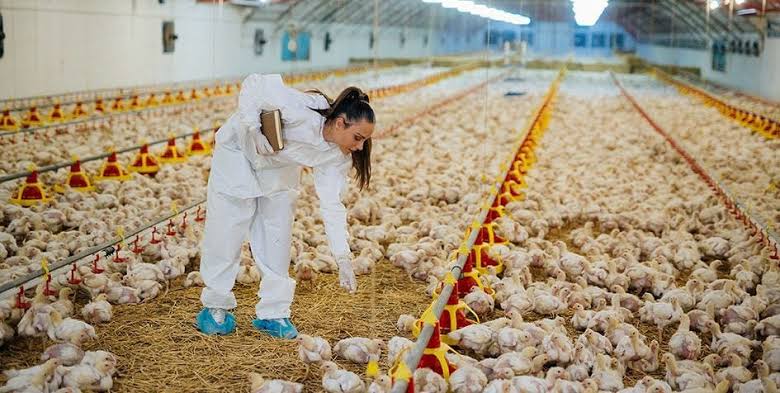How to Get a Farm Loan
Getting a farm loan means borrowing money to support your farming activities. Farmers often seek loans to purchase equipment, buy seeds and fertilizers, or expand their agricultural operations. The process involves working with financial institutions that specialize in agricultural lending.
Farm loans are crucial for farmers who may not have sufficient funds to invest in the necessary resources for their farms. These loans provide a financial cushion, enabling farmers to manage expenses, navigate seasonal challenges, and invest in the growth of their farms.
Farmers typically approach banks or other financial institutions to apply for a farm loan. The application process involves providing details about the farm, its production goals, and the purpose for which the loan is sought. Lenders assess the feasibility of the loan based on factors such as the farmer’s credit history, the value of the farm assets, and the projected income from the agricultural activities.
Once approved, the farm loan provides the necessary capital for farmers to purchase equipment like tractors, plows, and irrigation systems. It also allows them to buy seeds, livestock, and other inputs essential for successful farming. In essence, getting a farm loan is a strategic financial decision that empowers farmers to invest in their businesses and enhance productivity.
Farm loans come with various terms and conditions, including interest rates and repayment schedules. It is crucial for farmers to carefully review these terms and choose a loan that aligns with their financial capabilities. Effective management of the loan, including timely repayments, helps farmers build a positive credit history, which can be beneficial for future borrowing needs.
One of the key benefits of getting a farm loan is the potential for increased profitability. By having access to capital, farmers can adopt modern farming techniques, invest in technology, and implement efficient practices that lead to higher yields. This, in turn, contributes to the sustainability and success of the agricultural enterprise.
However, getting a farm loan also comes with its challenges. Farmers need to be mindful of market fluctuations, weather conditions, and other unpredictable factors that can impact their ability to repay the loan. Effective risk management strategies, such as crop insurance, can help mitigate these uncertainties and safeguard the farmer’s financial stability.
In addition, getting a farm loan is a significant step for farmers aiming to strengthen and expand their agricultural endeavors. It provides the necessary financial support to overcome challenges, invest in essential resources, and ultimately contribute to the overall growth of the farming business.
Farmers should approach the process with careful consideration, understanding the terms of the loan and developing a well-thought-out plan for utilizing the borrowed funds to achieve long-term success in agriculture.
Read Also: Types of Rabbit Housing
How to Get a Farm Loan

Getting a farm loan can be an important step for those looking to start or expand their agricultural endeavors. Here’s a simple guide on how to navigate the process:
1. Understand Your Needs: Before diving into the loan application process, clearly define your farming goals and financial needs. Identify the specific purpose of the loan, whether it’s purchasing land, equipment, or operational expenses.
2. Research Lenders: Look for lenders that specialize in agricultural loans. Local banks, credit unions, and government programs are common sources. Compare interest rates, terms, and eligibility criteria to find the best fit for your situation.
3. Build a Solid Business Plan: Lenders want to see a well-thought-out business plan. Outline your farm’s mission, goals, and financial projections. Include details about your experience, market analysis, and strategies for success.
4. Organize Financial Documents: Gather essential financial documents, such as tax returns, income statements, and balance sheets. Having a clear and organized financial history demonstrates your ability to manage finances responsibly.
5. Check Your Credit Score: A good credit score improves your chances of loan approval. Review your credit report for accuracy and address any issues. A higher credit score can lead to more favorable loan terms.
6. Explore Government Programs: Investigate government-backed farm loan programs, such as those offered by the United States Department of Agriculture (USDA). These programs often have lower interest rates and more flexible terms.
7. Collateral and Down Payment: Be prepared to offer collateral to secure the loan. This could include the farm itself, equipment, or other valuable assets. Additionally, some lenders may require a down payment, so budget accordingly.
8. Engage with Local Agricultural Agencies: Connect with local agricultural extension offices and agencies. They can provide valuable insights, resources, and assistance in navigating the loan application process.
9. Consult with Financial Advisors: Seek advice from financial professionals or agricultural consultants. They can provide guidance on financial strategies, risk management, and other aspects of your farm business that may impact your loan application.
10. Submit a Comprehensive Application: When applying for the loan, ensure that your application is complete and accurate. Double-check all information and include supporting documentation. A thorough application increases your chances of approval.
11. Be Prepared for Review: Lenders will carefully review your application. Be ready to discuss your business plan, financial history, and how the loan will benefit your farm. Be transparent and address any concerns the lender may have.
12. Patience is Key: The loan approval process may take time. Be patient and responsive to any requests for additional information. Stay engaged with the lender throughout the process.
Remember, obtaining a farm loan is a significant step in realizing your agricultural goals. By following these steps and maintaining clear communication with lenders, you increase your chances of securing the financial support needed for a successful farming venture.
Read Also: Rabbit Hutch Equipment and Requirements
Advantages of Getting a Farm Loan

Getting a farm loan can offer various advantages for individuals involved in agriculture. Here are some key benefits:
1. Capital for Start-Up or Expansion: Farm loans provide the necessary capital to start a new farm or expand existing operations. This financial support enables farmers to purchase land, equipment, and other resources essential for agricultural activities.
2. Improved Technology and Equipment: With a farm loan, farmers can invest in modern technology and efficient equipment. Upgrading machinery and adopting advanced agricultural practices can enhance productivity and overall farm efficiency.
3. Operational Sustainability: Farm loans contribute to the sustainability of day-to-day operations. Whether covering planting costs, purchasing livestock, or managing seasonal expenses, the funds obtained through a loan help maintain a stable and thriving farm.
4. Seasonal Cash Flow Management: Agriculture often involves seasonal income fluctuations. Farm loans provide a financial buffer to manage cash flow during off-peak seasons, ensuring that operational needs are met consistently throughout the year.
5. Diversification Opportunities: Farmers can use loans to diversify their agricultural activities. This might include exploring new crops, livestock, or agribusiness ventures. Diversification can mitigate risks and open up additional revenue streams for the farm.
6. Risk Management: Agriculture is susceptible to various risks, including weather-related challenges and market fluctuations. Farm loans can be utilized to implement risk management strategies, such as investing in insurance or building resilient infrastructure.
7. Land Acquisition: One of the significant advantages of farm loans is the ability to acquire additional land. Expanding the farm’s acreage allows for increased production capacity and potential for higher yields, contributing to long-term sustainability.
8. Enhanced Productivity and Quality: Access to funds through a farm loan enables farmers to adopt practices that enhance overall productivity and product quality. This can lead to increased competitiveness in the market and better positioning for long-term success.
9. Compliance with Environmental Standards: Farm loans can support the implementation of environmentally friendly practices and compliance with sustainability standards. This not only benefits the environment but can also open up opportunities for marketing farm products to environmentally conscious consumers.
10. Investment in Education and Training: Farm loans can be used for educational purposes, allowing farmers to attend training programs, workshops, or courses to enhance their skills and knowledge. This continuous learning contributes to improved farm management and efficiency.
11. Generational Succession: Securing a farm loan can facilitate smooth generational transitions. It provides the financial means to transfer the farm to the next generation, ensuring continuity and the preservation of family farming traditions.
12. Contribution to Rural Development: By supporting local agriculture through farm loans, there is a positive impact on rural development. This includes job creation, community sustainability, and fostering economic growth in rural areas.
In summary, farm loans play a crucial role in fostering the growth, sustainability, and success of agricultural enterprises. They provide the financial foundation for farmers to navigate challenges, invest in innovation, and contribute to the overall development of the agricultural sector.
Read Also: What is the Human Impacts on Nutrient Cycles?









